Top 10 Best Books On Game Theory
Game theory is a branch of mathematics that deals with the analysis of strategies for dealing with competitive situations in which the outcome of a ... read more...participant's actions depends on other participants. Therefore, the best books on game theory come out to help people simplify the subject. Here is a list of game theory books that we have put together that are sure to help you.
-
William Spaniel is an assistant professor in the Department of Political Science at the University of Pittsburgh. He previously worked at Stanford University's Center for International Security and Cooperation as a Stanton Nuclear Security Postdoctoral Fellow. He has a Ph.D. in political science from the University of Rochester and is the creator of the popular YouTube series Game Theory 101 as well as the website gametheory101.com.
Game Theory 101 includes four main lesson components, each with several chapters and subchapters, with discussions centered on strategic and extensive form games. Spaniel introduces various games of increasing difficulty while providing theoretical tools for solving them.
The first section of the book thoroughly explains concepts, laying a solid foundation for the subsequent chapters. This means you'll be less confused as you encounter idea clarifications along the way. The book also includes clear examples to back up each discussion, making it easier for even novices to understand what game theory is.
It's worth noting that Spaniel wrote Game Theory 101: The Complete Textbook with the assumption that his readers are fairly well-versed in algebra. As a result, the formulas and steps required to arrive at the final results are not explained. Certain sections of the book may be difficult to navigate if you are unfamiliar with algebra.
Author: William Spaniel
Link to buy: https://www.amazon.com/dp/1492728152
Ratings: 4.4 out of 5 stars (from 360 reviews)
Best Sellers Rank: #63,979 in Books
#11 in Game Theory (Books)
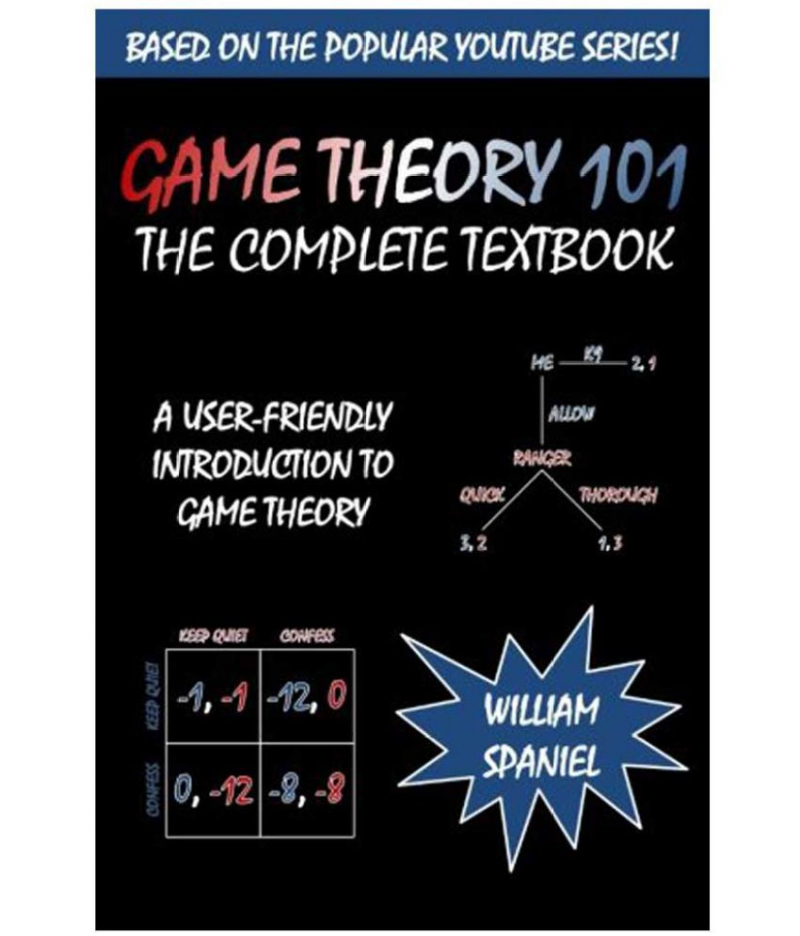
snapdeal.com 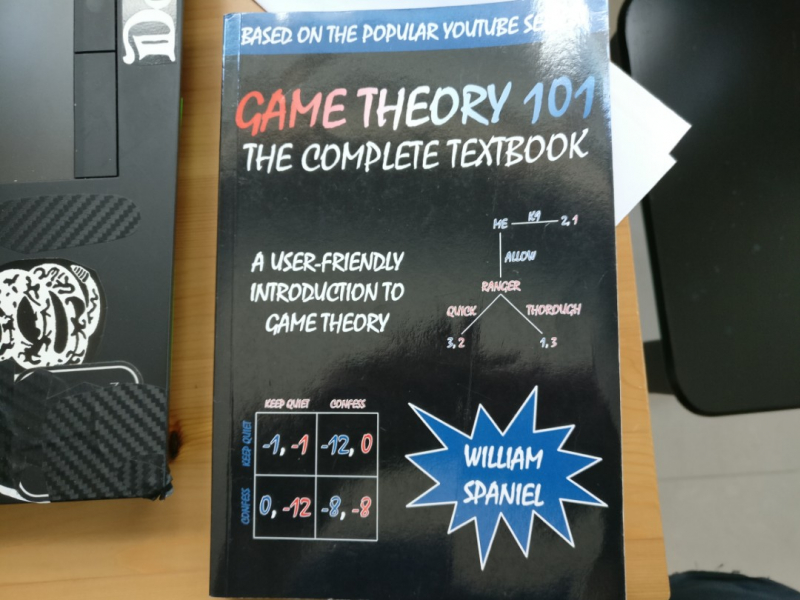
carousell.com.hk -
Emeritus John J.F. Sherrerd University Professor of Economics at Princeton University, Avinash K. Dixit taught his popular freshman course in game theory. He is regarded as one of the world's leading economists, having made significant contributions in a variety of major fields as well as game theory. He is the author of numerous books, including Dixit/Nalebuff: Thinking Strategically, Dixit/Pindyck: Investment Under Uncertainty, and Dixit/Nalebuff: The Art of Strategy.
Barry J. Nalebuff is the Milton Steinbach Professor at the Yale School of Management. Nalebuff uses game theory in business strategy and is the co-founder of Honest Tea, one of America's fastest-growing companies.
Game theory entails rigorous strategic reasoning. It is the art of anticipating your opponent's next moves while fully aware that your opponent is attempting to do the same to you. Though some aspects of game theory are intuitive, much is counterintuitive, and it can only be mastered by developing a new way of seeing the world. In The Art of Strategy, the authors demonstrate how nearly every business and personal interaction has a game-theory component by using a diverse array of rich case studies from pop culture, TV, movies, sports, politics, and history. Mastering game theory will help you succeed in business and in life, and this lively book is the key to achieving that mastery.
Author: Avinash K. Dixit and Barry J. Nalebuff
Link to buy: https://www.amazon.com/dp/0393337170
Ratings: 4.5 out of 5 stars (from 851 reviews)
Best Sellers Rank: #26,005 in Books
#5 in Game Theory (Books)
#31 in Strategic Business Planning
#65 in Systems & Planning
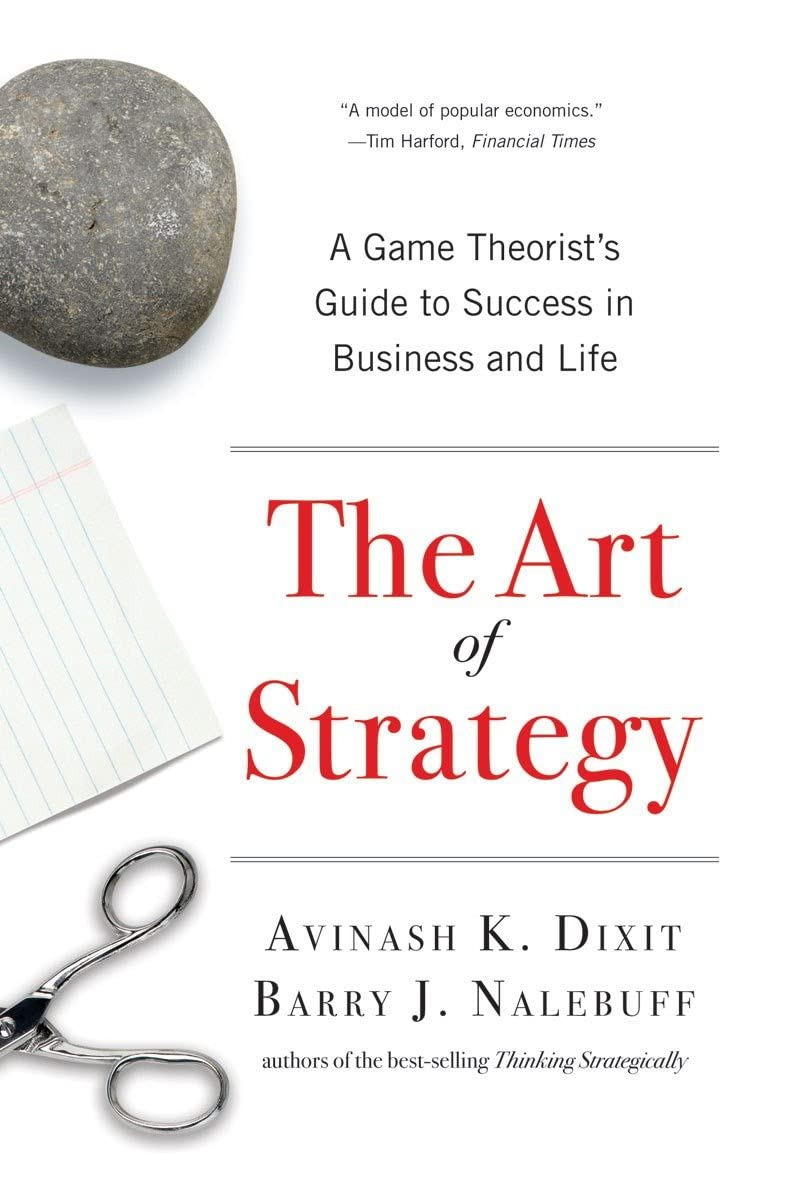
https://www.amazon.com/ 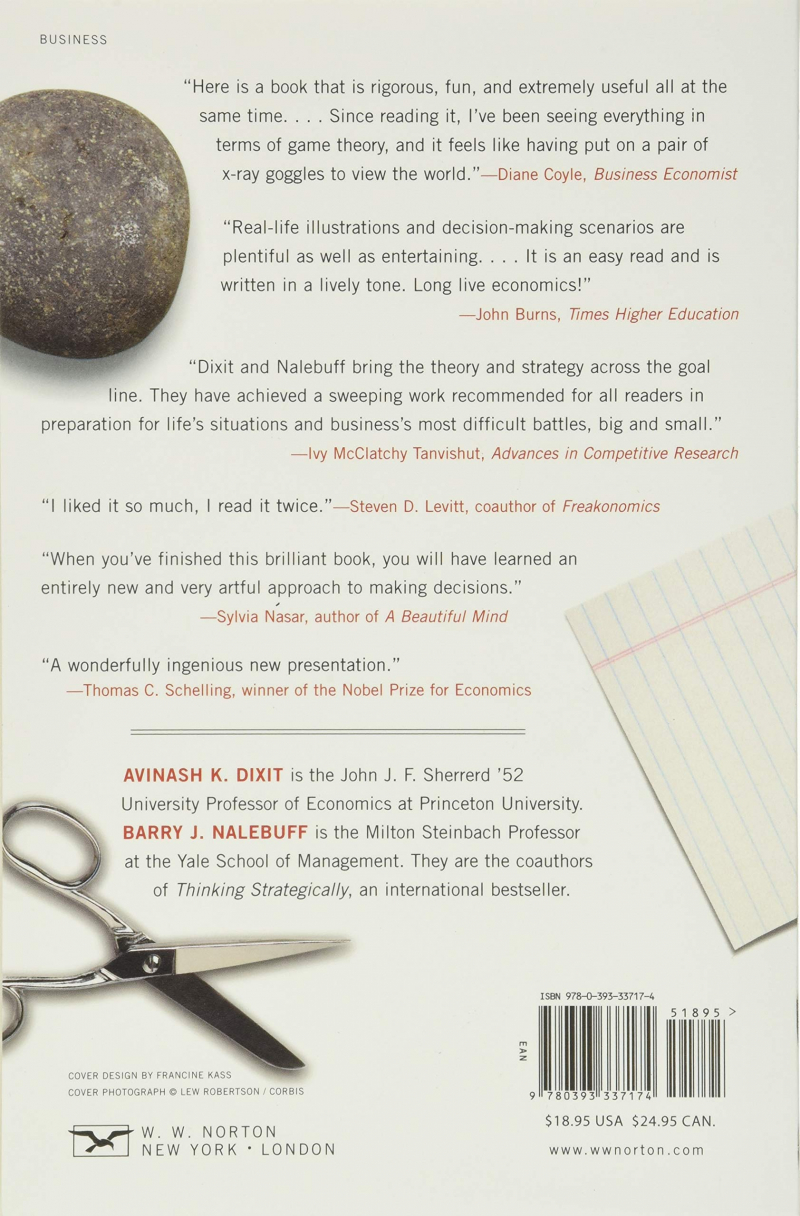
https://www.amazon.com/ -
Steven Tadelis is an associate professor and Barbara and Gerson Bakar Faculty Fellow at the University of California, Berkeley's Haas School of Business, as well as a Distinguished Economist at eBay Research Labs.
This comprehensive textbook introduces readers to the fundamental ideas and applications of game theory in an approachable yet rigorous style. Steven Tadelis starts with a brief overview of rational decision making before moving on to discuss strategic and extensive form games with complete information, Bayesian games, and extensive form games with imperfect information. He discusses multistage and repeated games, bargaining theory, auctions, rent-seeking games, mechanism design, signaling games, reputation building, and information transmission games, among other things. Unlike other books on game theory, this one starts with the concept of rationality and works its way through concepts like dominated strategies and rationalizability to explore its implications for multiperson decision problems. The subject of Nash equilibrium and its derivatives is only introduced after that.
Among the best books on game theory, Game Theory is an excellent textbook for advanced undergraduate and graduate students. Throughout, real-world examples and precise analytic material are used to explain concepts and methods. The book contains numerous exercises that focus on how to formalize and then analyze informal situations, as well as many important applications to economics and political science.
- Introduces the fundamental concepts and applications of game theory.
- Includes both static and dynamic games, as well as complete and incomplete information.
- It includes a number of examples, applications, and exercises.
- Repeated games, bargaining, auctions, signaling, reputation, and information transmission are some of the topics covered.
- Excellent for advanced undergraduate and graduate students.
- Teachers can access complete solutions, while students can access selected solutions.
Author: Steven Tadelis
Link to buy: https://www.amazon.com/dp/0691129088
Ratings: 4.5 out of 5 stars (from 147 reviews)
Best Sellers Rank: #284,455 in Books
#56 in Game Theory (Books)
#328 in Theory of Economics
#1,310 in History & Theory of Politics
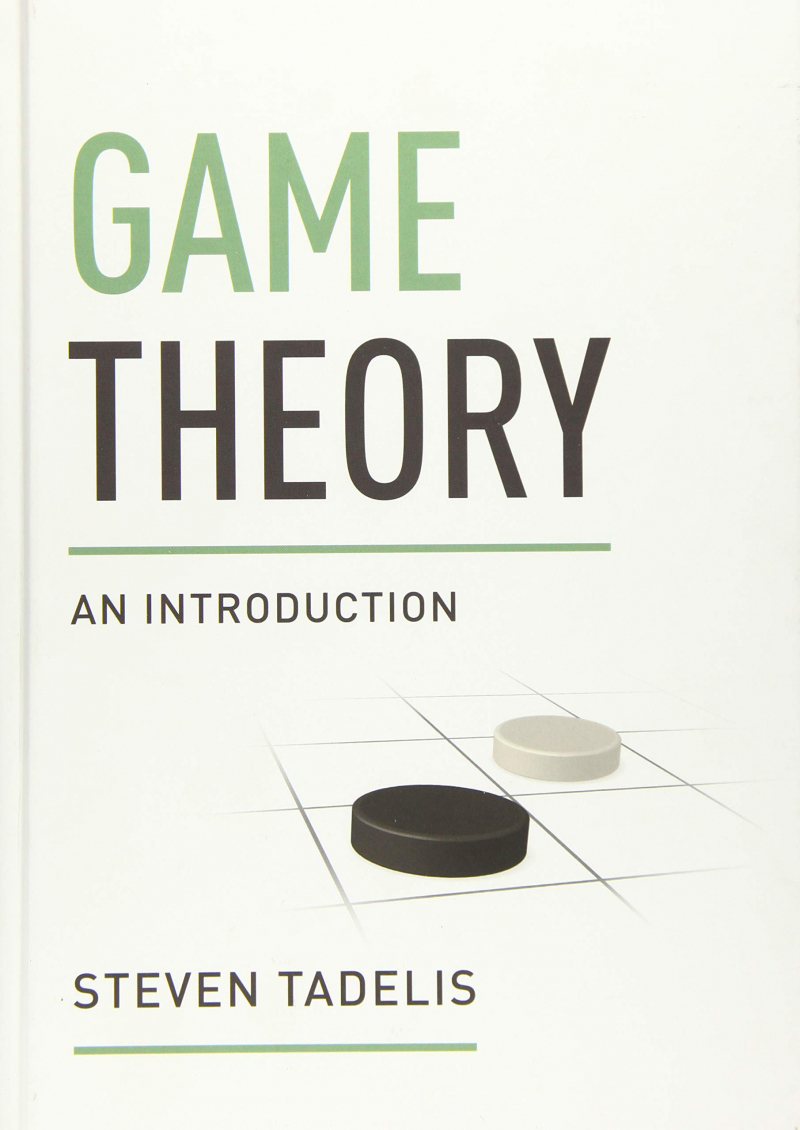
https://www.amazon.com/ 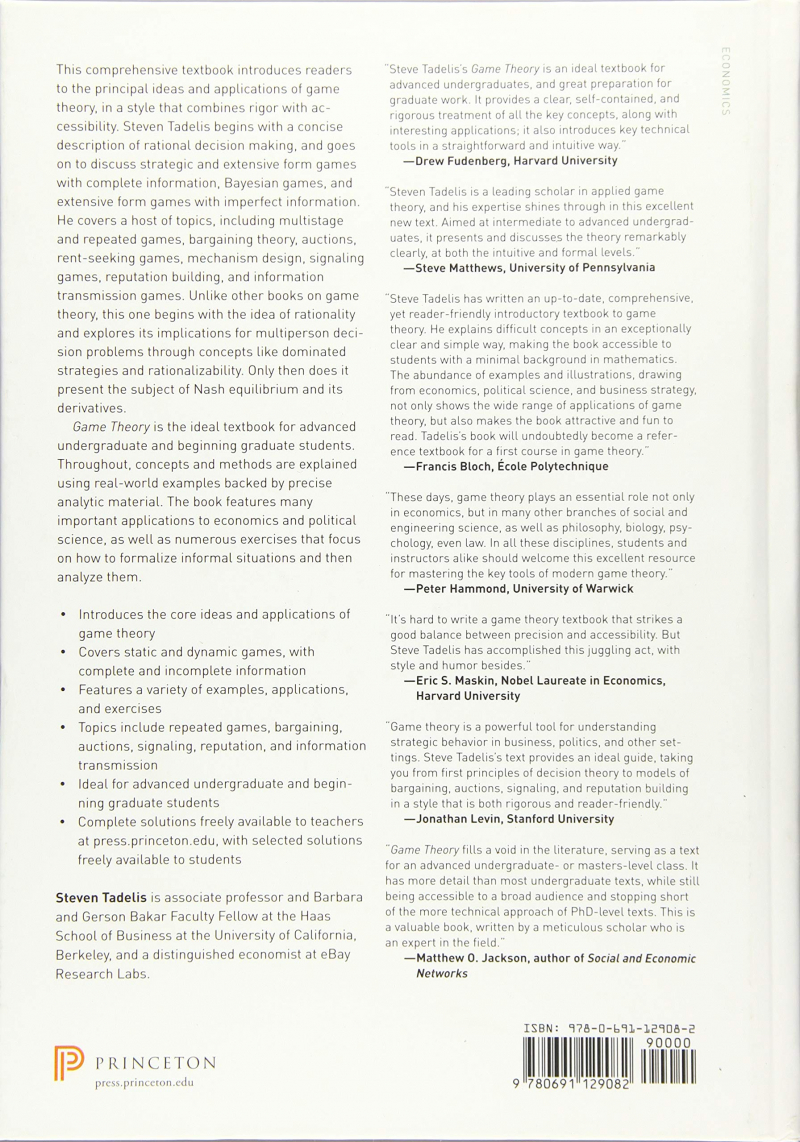
https://www.amazon.com/ -
John von Neumann (1903-1957) was a pioneering figure in computer science and one of the greatest mathematicians of the twentieth century. He was born in Hungary and had previously held professorships in Germany before being appointed Professor of Mathematics at the Institute for Advanced Study (IAS) in 1933.
Before moving to the United States in 1938, Oskar Morgenstern (1902-1977) taught at the University of Vienna and directed the Austrian Institute of Business Cycle Research. He joined the faculty of Princeton University, eventually becoming a professor and directing its econometric research program beginning in 1948. He provided advice to the US government on a wide range of issues.
Harold Kuhn is a Princeton University Professor Emeritus of Mathematical Economics. Ariel Rubinstein is an economist who teaches at both Tel Aviv University and New York University.
This is the foundational work on which modern game theory is built. What began more than sixty years ago as a modest proposal that a mathematician and an economist collaborate on a short paper blossomed in 1944, with the publication of Theory of Games and Economic Behavior by Princeton University Press. In it, John von Neumann and Oskar Morgenstern proposed a groundbreaking mathematical theory of economic and social organization based on a strategy game theory. Not only would this revolutionize economics, but the entirely new field of scientific inquiry it produced—game theory—has since been widely used to analyze a variety of real-world phenomena ranging from arms races to optimal presidential candidate policy choices, from vaccination policy to major league baseball salary negotiations. And it is now widely accepted in the social sciences as well as a wide range of other sciences.
This sixtieth-anniversary edition includes not only the original text but also an introduction by Harold Kuhn, an afterword by Ariel Rubinstein, and reviews and articles on the book that appeared in the New York Times, the American Economic Review, and a variety of other publications at the time of its original publication. Together, these writings offer readers an unparalleled opportunity to fully appreciate a work whose impact will be felt for generations to come.
Author: John von Neumann, Oskar Morgenstern, Harold Kuhn, and Ariel Rubinstein
Link to buy: https://www.amazon.com/gp/aw/d/0691130612/
Ratings: 4.5 out of 5 stars (from 189 reviews)
Best Sellers Rank: #149,760 in Books
#4 in Economic Theory (Books)
#31 in Game Theory (Books)
#169 in Theory of Economics
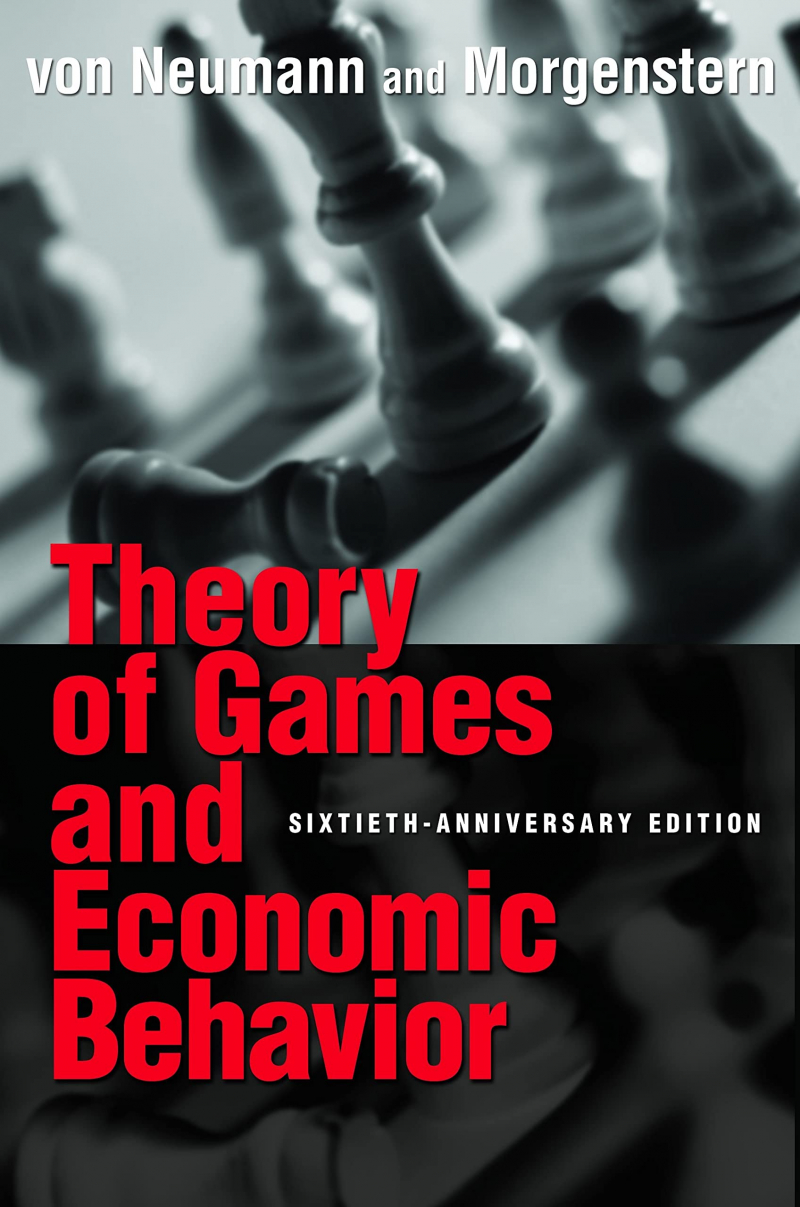
https://www.amazon.com/ 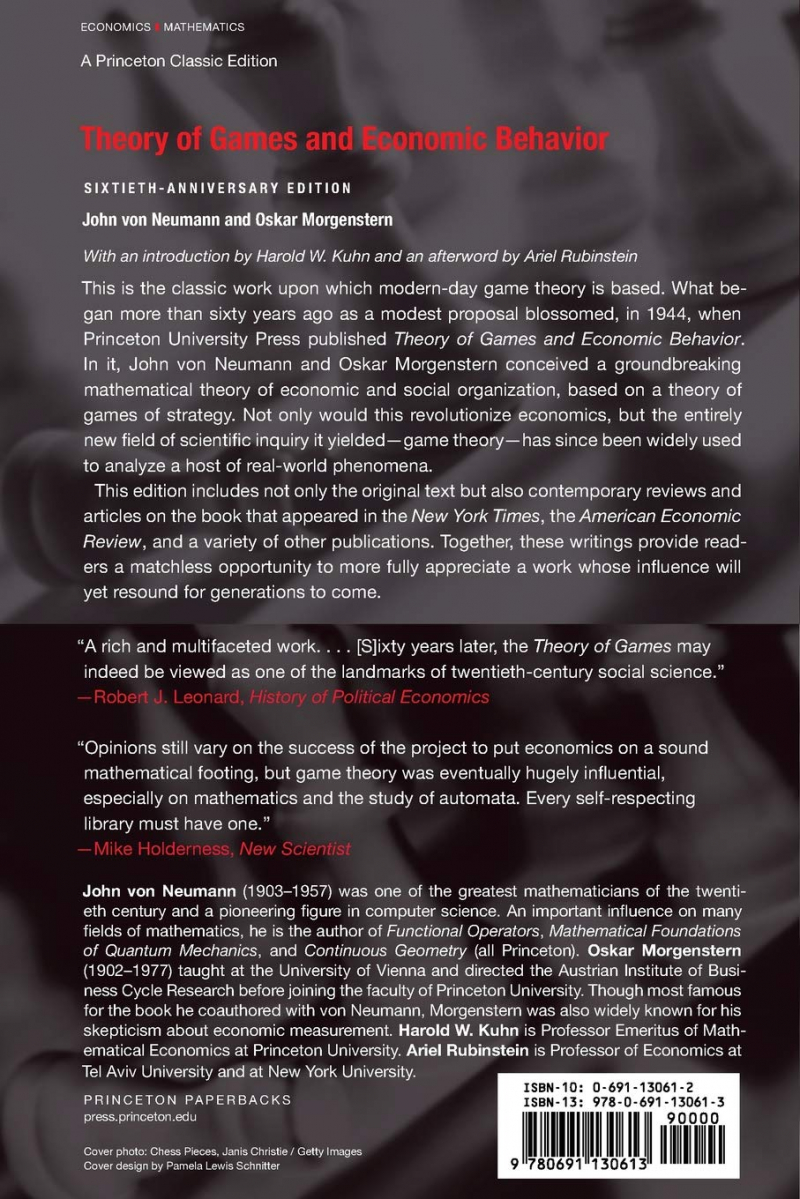
https://www.amazon.com/ -
Presh Talwalkar runs the YouTube channel and blog Mind Your Decisions, which has millions of views on videos and articles about math and game theory. At Stanford University, he majored in Economics and Mathematics.
The Joy of Game Theory is a collection of the best articles from the blog Mind Your Decisions column Game Theory Tuesdays. Game Theory Tuesdays articles have been cited in The Freakonomics Blog, Yahoo Finance, and CNN.com. The second edition includes many streamlined explanations as well as suggestions from first-edition readers.
Game theory is the study of interactive decision-making or situations in which each individual's actions affect the outcome for the entire group. This book will teach you how to understand game theory and practically implement solutions through a series of stories and the use of over 30 illustrations.
The Joy of Game Theory has two primary goals:
- To assist you in recognizing strategic games such as the Prisoner's Dilemma, Bertrand Duopoly, Hotelling's Game, Chicken Game, and Mutually Assured Destruction.
- To teach you how to make better decisions and change the game, a powerful concept that can turn no-win situations into win-win situations. You'll learn how to negotiate more effectively by making your threats credible, sometimes limiting your options or burning bridges, and constantly thinking of new ways to achieve better results.
As these objectives suggest, game theory is about more than just board games and gambling. It all appears to be so simple, but that definition belies the complexities of game theory. While game theory can be grasped in seconds, it takes a lifetime to appreciate and master. This is a good place to start.
Author: Presh Talwalkar
Link to buy: https://www.amazon.com/gp/aw/d/B00H69CQ4Q/
Ratings: 4.3 out of 5 stars (from 277 reviews)
Best Sellers Rank: #122,359 in Kindle Store
#8 in Game Theory (Kindle Store)
#19 in Game Theory (Books)
#73 in Business Systems & Planning
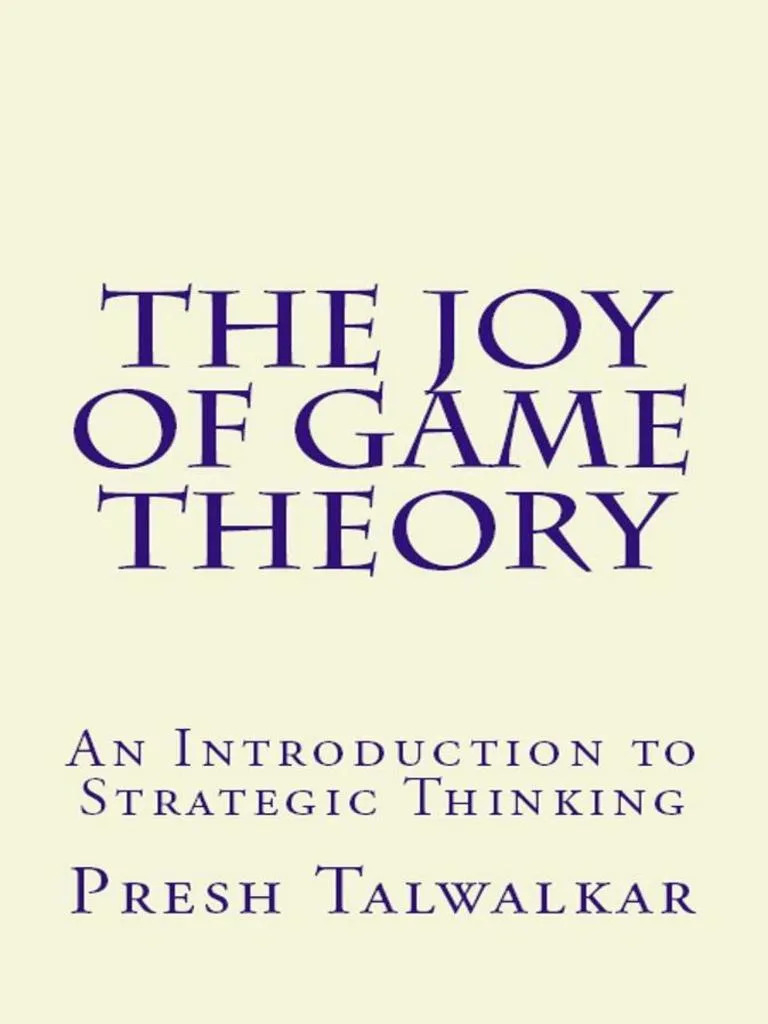
scribd.com 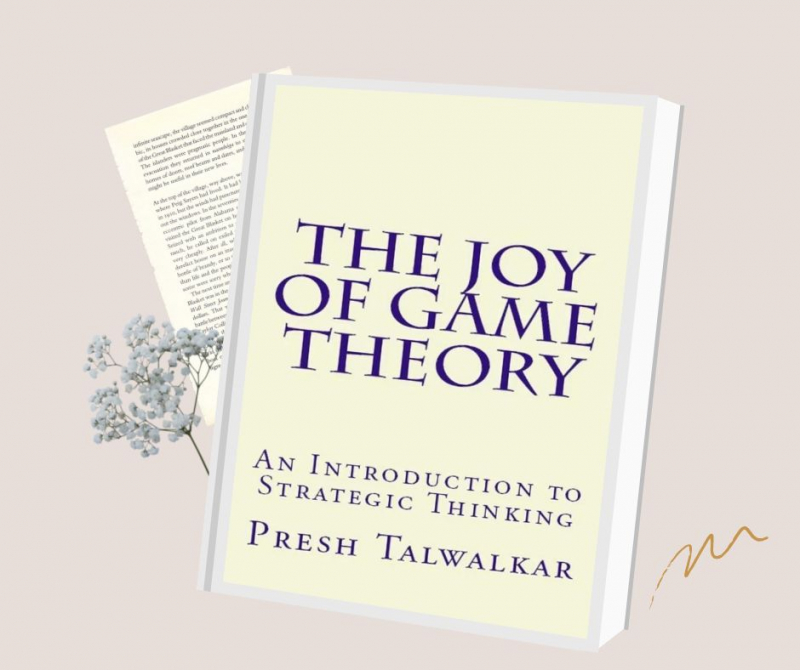
scribd.com - To assist you in recognizing strategic games such as the Prisoner's Dilemma, Bertrand Duopoly, Hotelling's Game, Chicken Game, and Mutually Assured Destruction.
-
Dr. Ivan and Dr. Tuvana Pastine are American and Turkish university lecturers in Ireland. They specialize in game theory applications and have published jointly and independently on a wide range of topics, including coordinating advertising and price dynamics, political campaign financing, affirmative action in education, sovereign default, speculative attacks, labor migration, and international trade.
Tom Humberstone is a comics and illustration artist. He is the editor and publisher of the UK comics anthology Solipsistic Pop, as well as a former New Statesman cartoonist. Clients include the Guardian, VICE, the Independent, Stylist, OUP, and many others.
What motivated countries to engage in a nuclear arms race? How can we make decisions when we don't have all of the facts? What enables international environmental cooperation?
The study of how we make decisions when the outcome of our moves is dependent on the decisions of others is known as game theory. But it's not just about predicting your opponent's next move in a game of chess; conflict and cooperation are central to game theory, which can be applied to everything from our social lives to business, global politics, and evolutionary theory.
In Introducing Game Theory, one of the best books on game theory, economists Ivan and Tuvana Pastine delve beneath the surface of human behavior, drawing on psychology, evolutionary biology, political science, and sociology to explain why, when faced with a decision, we sometimes cooperate, sometimes clash and sometimes act in a seemingly random manner.
Introducing Game Theory, stylishly illustrated by regular Guardian illustrator Tom Humberstone, takes readers on a tour of key ideas and thinkers, and immerses them in a series of games that provide a new perspective on the world we live in.
Author: Tom Humberstone, Dr. Ivan, and Dr. Tuvana Pastine
Link to buy: https://www.amazon.com/dp/1785780824
Ratings: 4.2 out of 5 stars (from 444 reviews)
Best Sellers Rank: #183,131 in Books
#39 in Game Theory (Books)
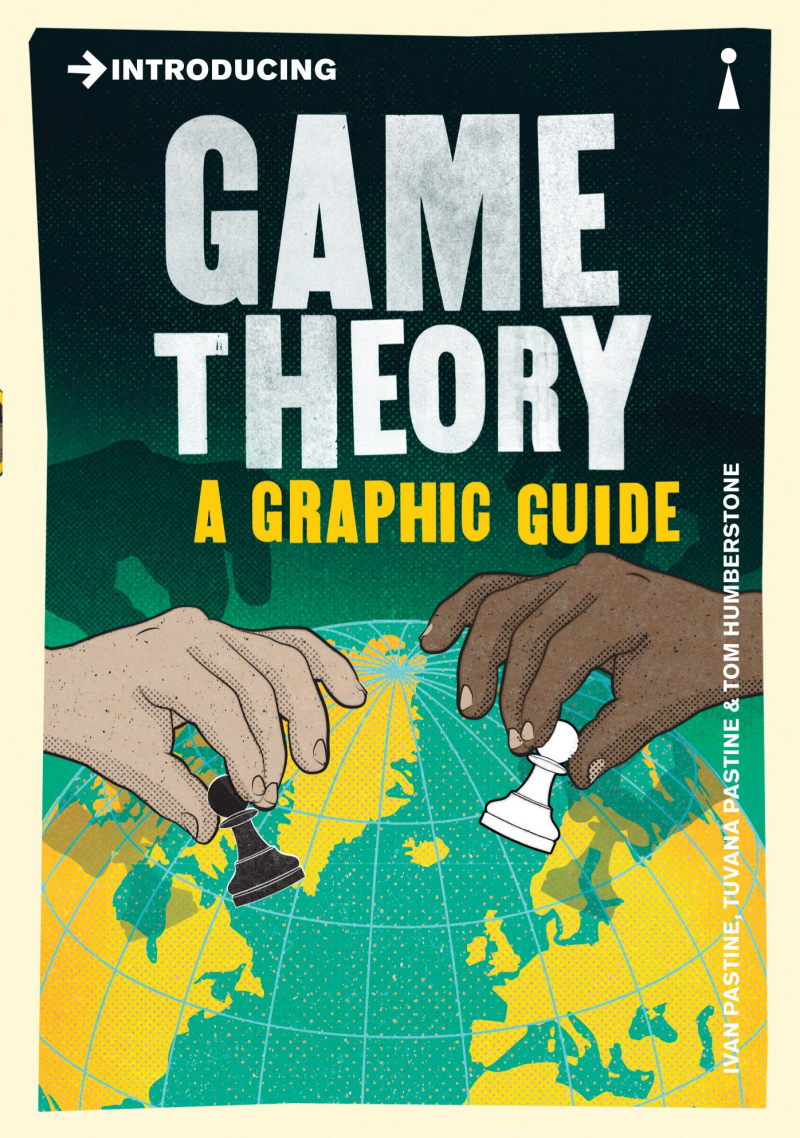
https://www.amazon.com/ 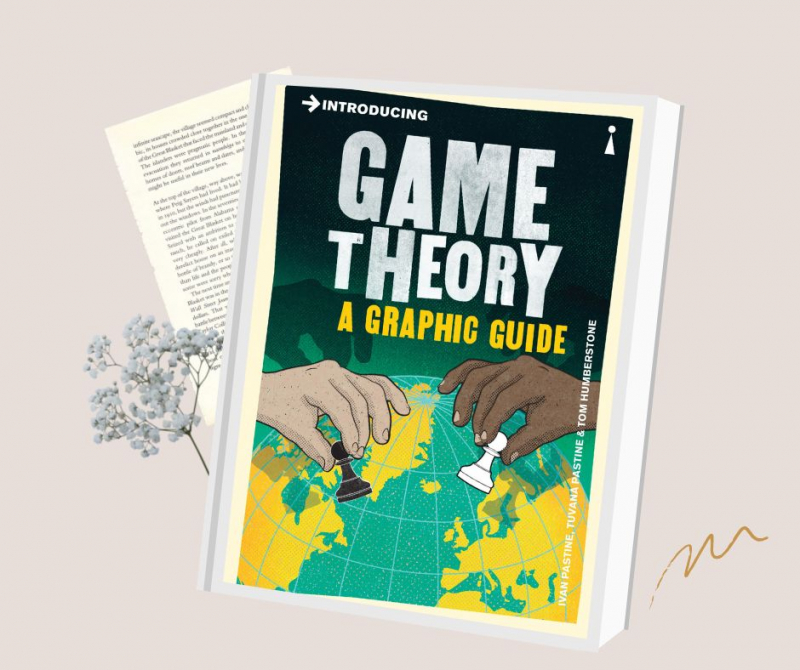
https://www.amazon.com/ -
Simon Sinek is a bestselling author of the books Start With Why, Leaders Eat Last, Together Is Better, and Find Your Why. He is working to create a world in which the vast majority of us wake up inspired, feel safe at work, and return home fulfilled.
How can we win a game with no end? Games with known players, fixed rules, and a clear endpoint, such as football or chess, are examples of finite games. The winners and losers are readily apparent. Players come and go in infinite games, games with no finish line, such as business, politics, or life itself. An infinite game's rules can be changed, whereas infinite games have no defined endpoint. There are no winners or losers, only those who are ahead and those who are behind.
The question is, how do we play to win in this game? Simon Sinek provides a framework for leading with an infinite mindset in The Infinite Game. On the one hand, none of us can resist the fleeting thrills of a promotion or a tournament victory, but these rewards are fleeting. We will commit to a vision of a future world so appealing that we will build it week after week, month after month, year after year in pursuit of a Just Cause. Although we don't know what shape this world will take, striving for it gives our work and lives meaning.
Leaders who embrace an infinite mindset build organizations that are stronger, more innovative, and more inspiring. Finally, they are the ones who will guide us into the future.
Author: Simon Sinek
Link to buy: https://www.amazon.com/dp/073521350X
Ratings: 4.7 out of 5 stars (from 5769 reviews)
Best Sellers Rank: #4,530 in Books
#23 in Decision-Making & Problem Solving
#64 in Motivational Management & Leadership
#117 in Leadership & Motivation
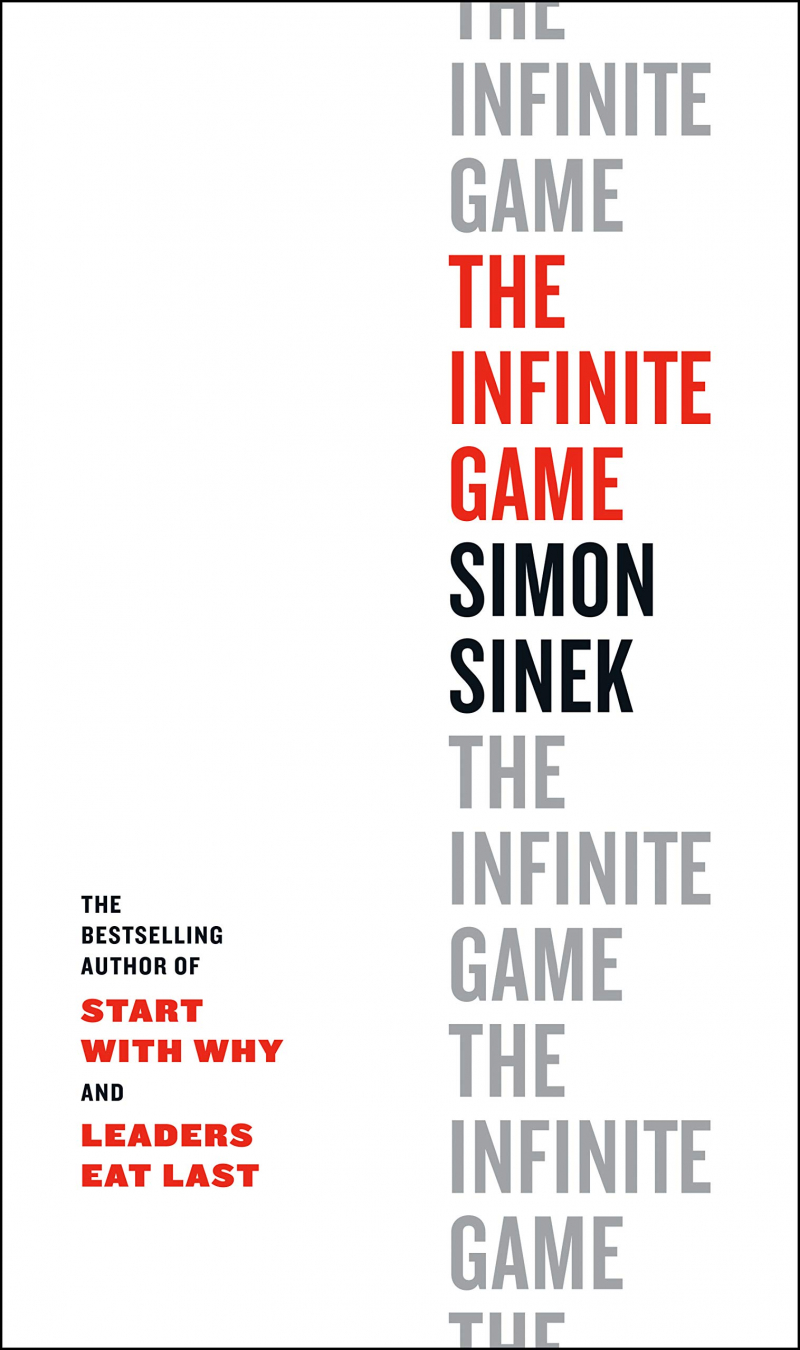
https://www.amazon.com/ 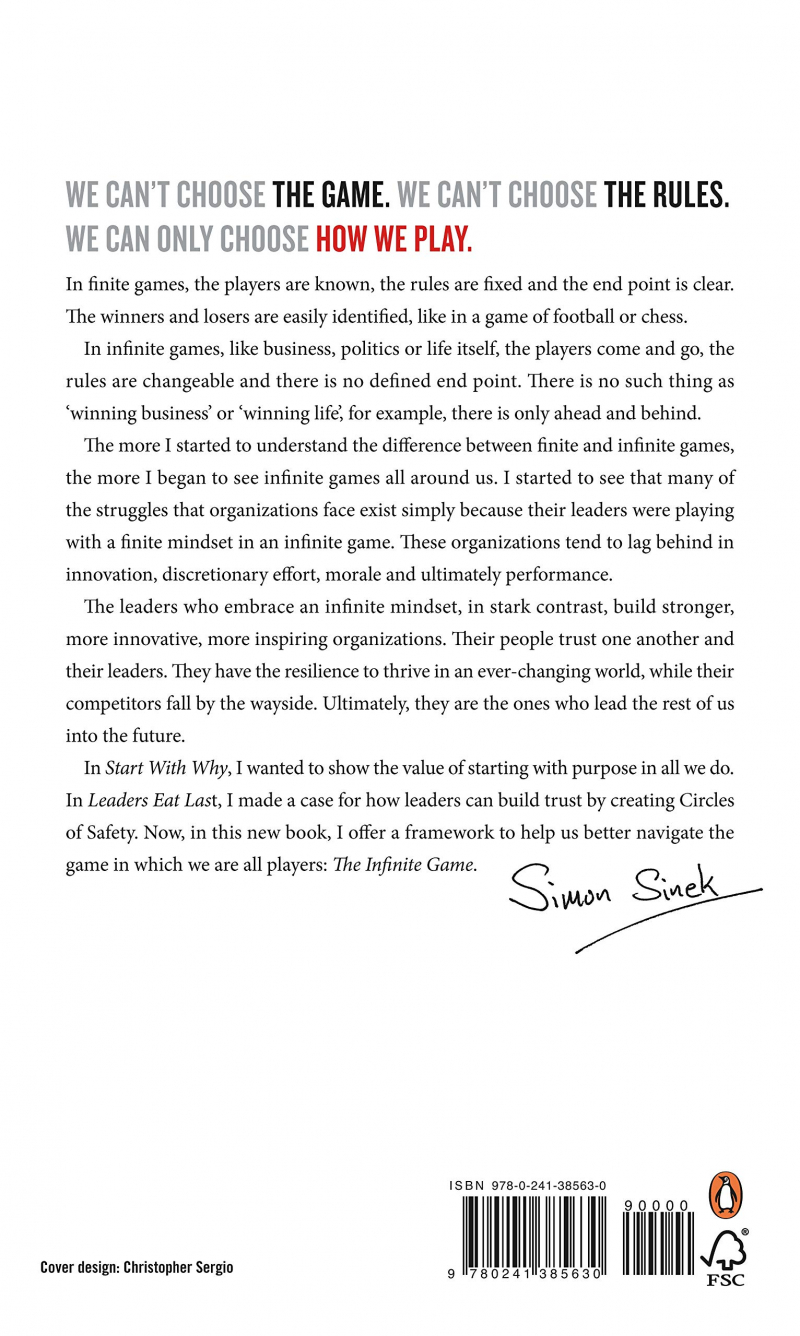
https://www.amazon.com/ -
Haim Shapira was born in Lithuania in 1962 and moved to Israel in 1977, where he earned a Ph.D. in mathematical genetics for his dissertation on Game Theory and another for his research on mathematical and philosophical approaches to Infinity. He instructs in math, psychology, philosophy, and literature. He is a popular and in-demand speaker in Israel, and he gives lectures on creativity and strategic thinking, existential philosophy and philosophy in children's literature, happiness and optimism, nonsense and insanity, imagination and the meaning of meaning, and friendship and love.
Game Theory is the mathematical formalization of interactive decision-making, and it assumes that each player's goal is to maximize his or her benefit, whatever that benefit may be. Friends, foes, political parties, states, or any entity that interacts, collectively or individually, are all possible players. One of the difficulties with game analysis is that it is difficult for a player to know what would benefit each of the other players. Some of us are unsure of our own objectives or what might actually benefit us.
Haim Shapira uses humorous anecdotes and insightful examples to explain Game Theory, how it affects our daily lives, and how different interactions between decision-makers can play out in Gladiators, Pirates, and Games of Trust. Among the best books on game theory, this book will teach you:
- Meet Nobel Laureate John F. Nash and become acquainted with Nash's equilibrium
- Learn the fundamentals of negotiation
- Visit the gladiators' ring and apply for a coaching position
- Construct an airport and divide the inheritance
- Issue ultimatums and learn to trust
- Examine every aspect of the prisoner's dilemma and discover the importance of cooperation
- Discover how statistics bolster lies
- And much more
Author: Haim Shapira
Link to buy: https://www.amazon.com/dp/1786780100
Ratings: 4.1 out of 5 stars (from 138 reviews)
Best Sellers Rank: #120,688 in Books
#24 in Game Theory (Books)
#1,966 in Leadership & Motivation
#2,172 in Success Self-Help
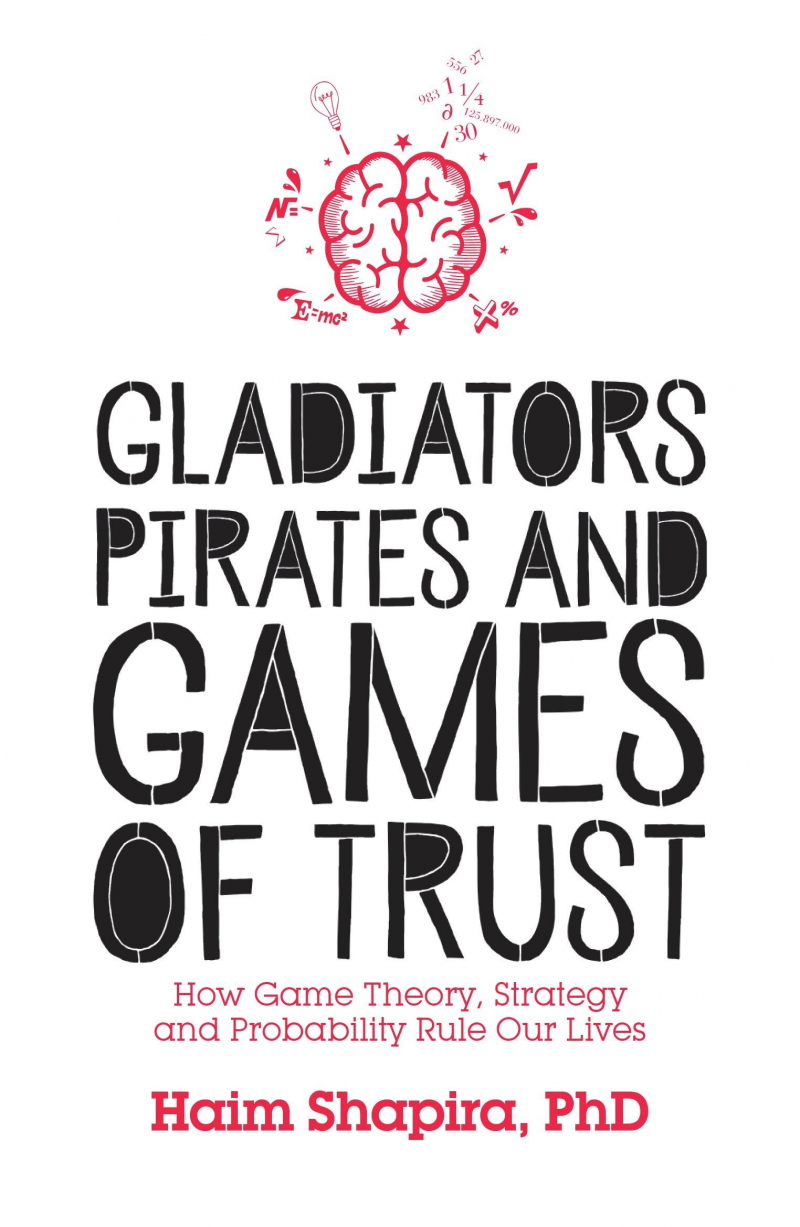
https://www.amazon.com/ 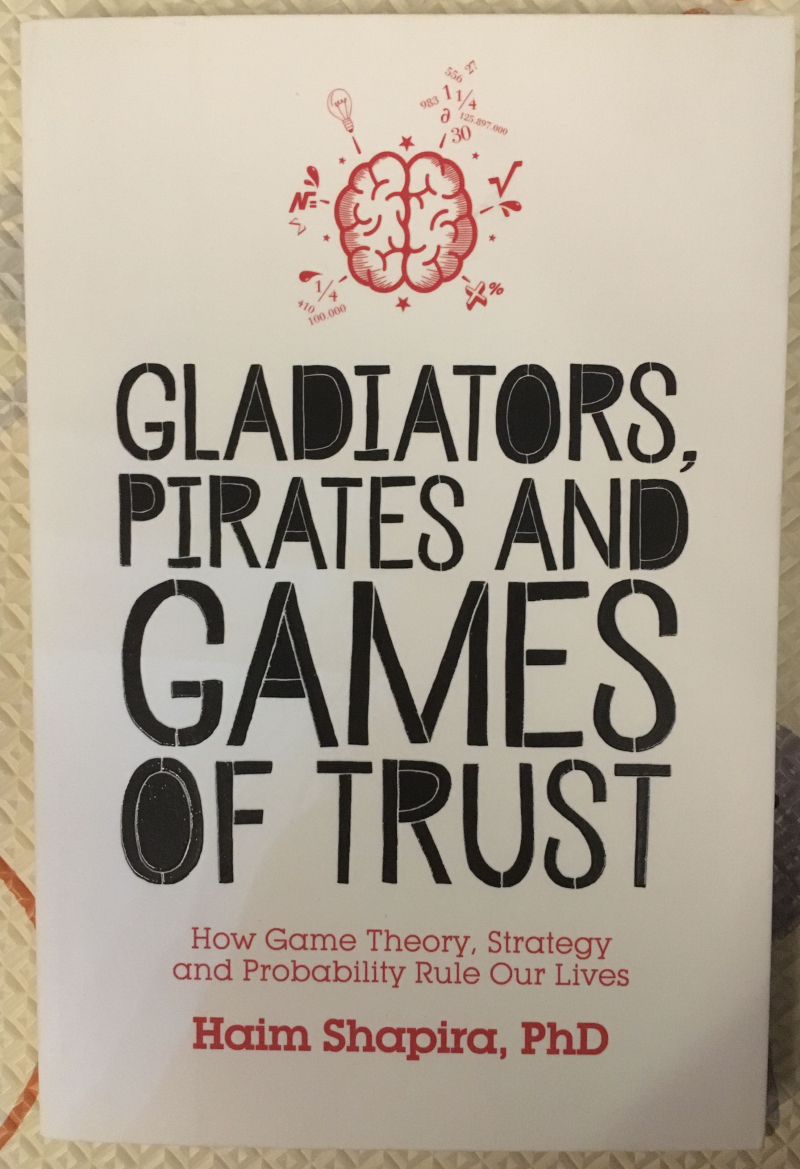
carousell.sg -
Albert Rutherford is a New York Times bestselling author. His books draw on a variety of sources, including corporate system development, organizational behavior analysis, scientific research, and his personal experience. He has spent his entire adult life building and improving systems and now brings his tried-and-true strategies to you.
Have you ever wished you could make better decisions and solve problems more easily? Learn Game Theory reveals great decision-makers well-kept secrets.
First and foremost, use logic and reason to manage uncertainty. Life is full of unknowns. You have no idea what lies ahead. However, using logic and reason, you can learn to control the controllable. This book will teach you new ways to think about - and solve - problems more efficiently than ever before. Learn how strategic games simulate real-life behavior. You'd be surprised how many game theory concepts have an impact on your life.
Game theory is a management tool that assists in rational decision-making. Game Theory is a subfield of mathematics that studies rational, strategic decision-making. It can be used in a variety of fields, including psychology, economics, and politics, as well as military strategy, business, and even retail pricing! It focuses on conflict and cooperation among intelligent, rational players, analyzing how to optimize one's decisions while considering the actions of others. This book will not only provide you with theoretical knowledge. It will teach you important life skills! The logical deductions used in game theory can help you learn superior strategic decision-making skills.
Second, develop confidence in your decision-making abilities. Albert Rutherford is a retired corporate executive and internationally bestselling author. His books draw on a variety of sources, including corporate system development, strategic analysis, scientific research, and his own life experience. He has spent his entire adult life building and improving systems and brings his tried-and-true advice to you.
Finally, make more accurate predictions about the future. What is the best way to request a raise? How do you pick a date location with your partner while avoiding conflict? How do professional athletes choose their best moves? How do corporations such as Nike and Adidas optimize their sales strategies? Extraordinary decisions will result in extraordinary success. Use game theory principles to boost your confidence in your decisions. Learn Game Theory is written in an informal, easy-to-follow style, with numerous relevant examples. It will assist you in becoming astute by utilizing strategic thinking and making better decisions based on logic and analysis.
Learn game theory and improve your business decisions, relationships, understanding of others, and ability to get out of sticky situations more effectively!
Author: Albert Rutherford
Link to buy: https://www.amazon.com/gp/aw/d/B0915Q91QN/
Ratings: 4.3 out of 5 stars (from 127 reviews)
Best Sellers Rank: #133,239 in Books
#11 in Mathematical Matrices
#27 in Game Theory (Books)
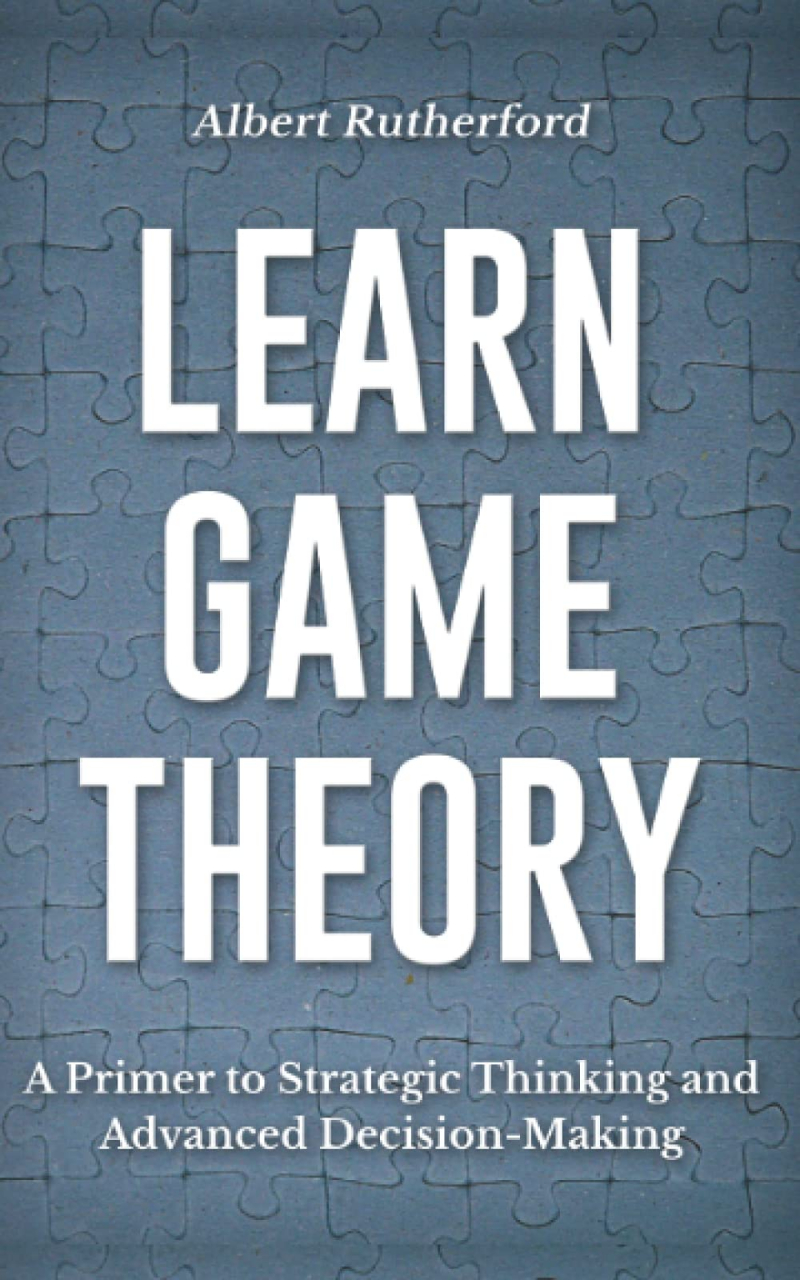
https://www.amazon.com/ 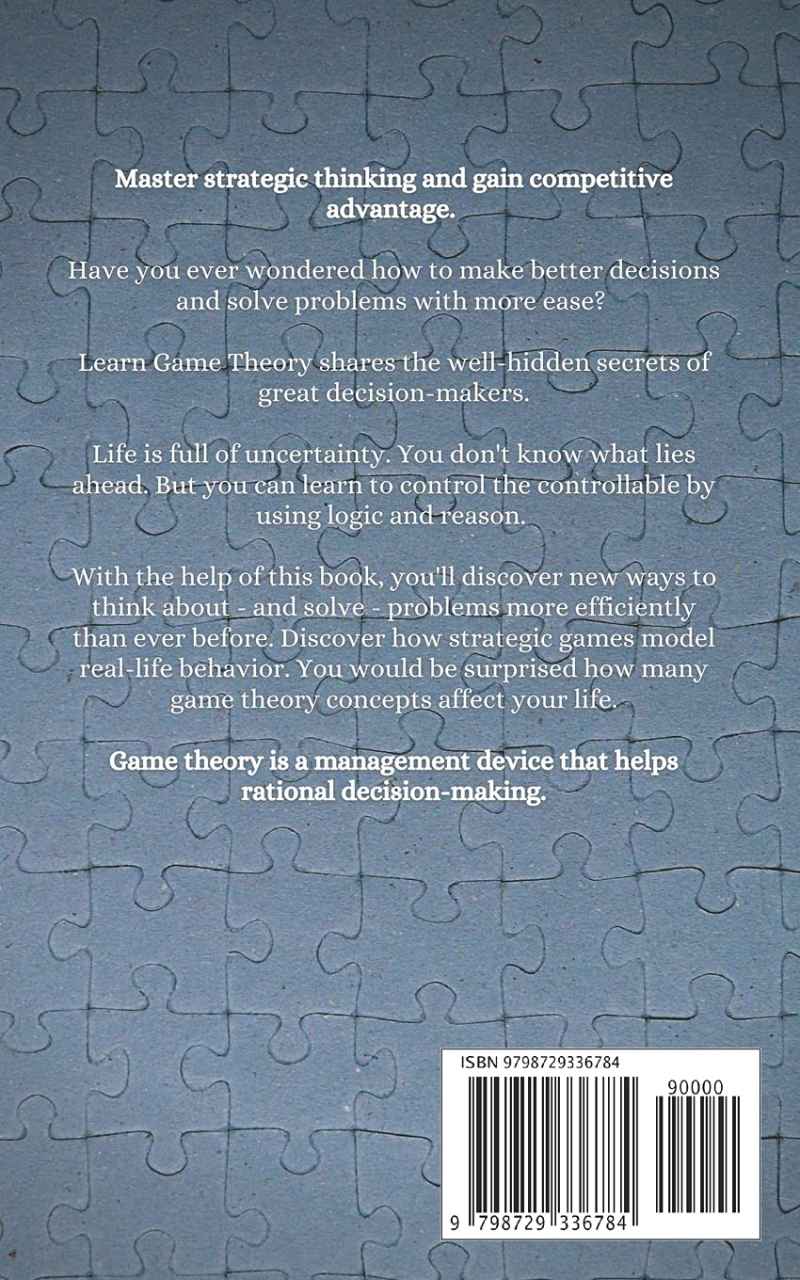
https://www.amazon.com/ -
Herbert Gintis teaches at the Santa Fe Institute and Central European University. He is the author of Game Theory Evolving (Princeton), coauthor of A Cooperative Species: Human Reciprocity and Its Evolution (Princeton), and co-editor of numerous books, including Moral Sentiments and Material Interests (Princeton), Unequal Chances (Princeton), and Foundations of Human Sociality.
Game theory is fundamental to understanding human behavior and is applicable to all behavioral sciences, ranging from biology and economics to anthropology and political science. However, as The Bounds of Reason demonstrates, game theory cannot fully explain human behavior and should instead be used in conjunction with other key concepts promoted by the behavioral sciences. Herbert Gintis demonstrates that, just as game theory without broader social theory is merely technical bluster, social theory without game theory is a handicapped endeavor. This edition has undergone extensive revision and updating.
The Bounds of Reason, which revitalizes game theory, provides innovative thinking for the behavioral sciences. It is regarded as one of the best books on game theory.
Author: Herbert Gintis
Link to buy: https://www.amazon.com/Bounds-Reason-Unification-Behavioral-Sciences/dp/0691160848/
Ratings: 4.5 out of 5 stars (from 27 reviews)
Best Sellers Rank: #151,689 in Books
#32 in Game Theory (Books)
#253 in Medical Social Psychology & Interactions
#523 in Popular Social Psychology & Interactions
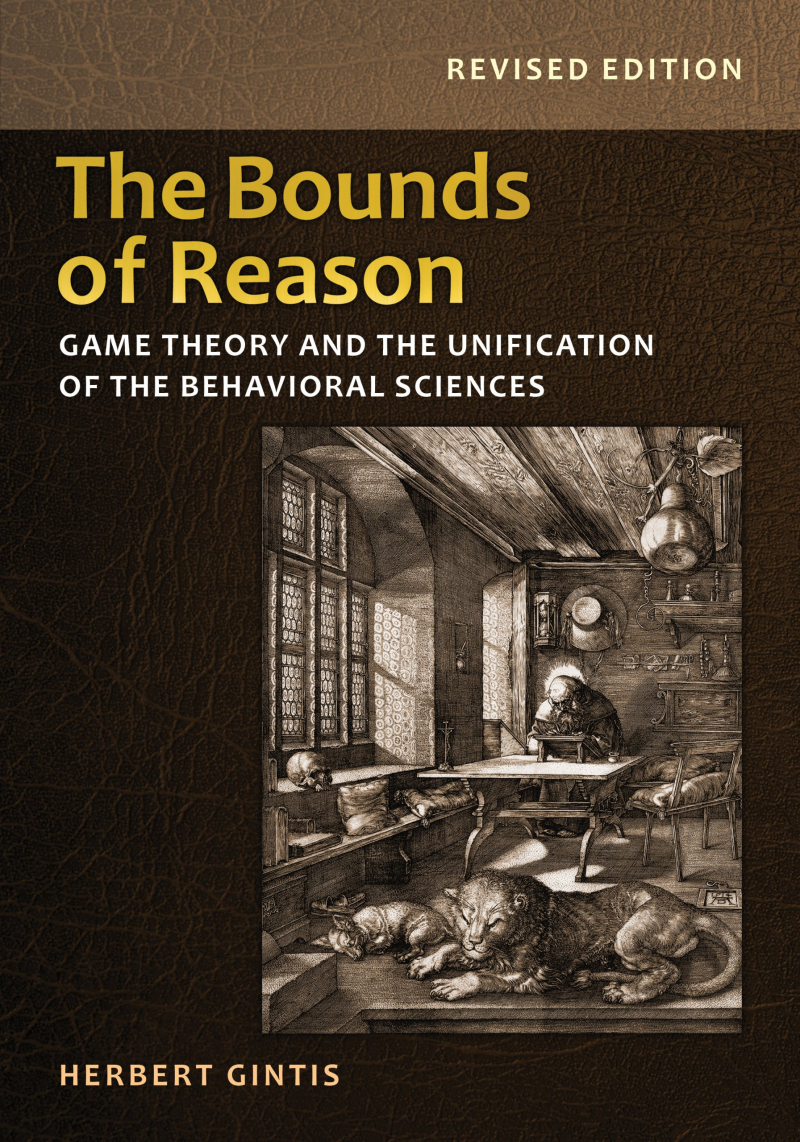
https://www.amazon.com/ 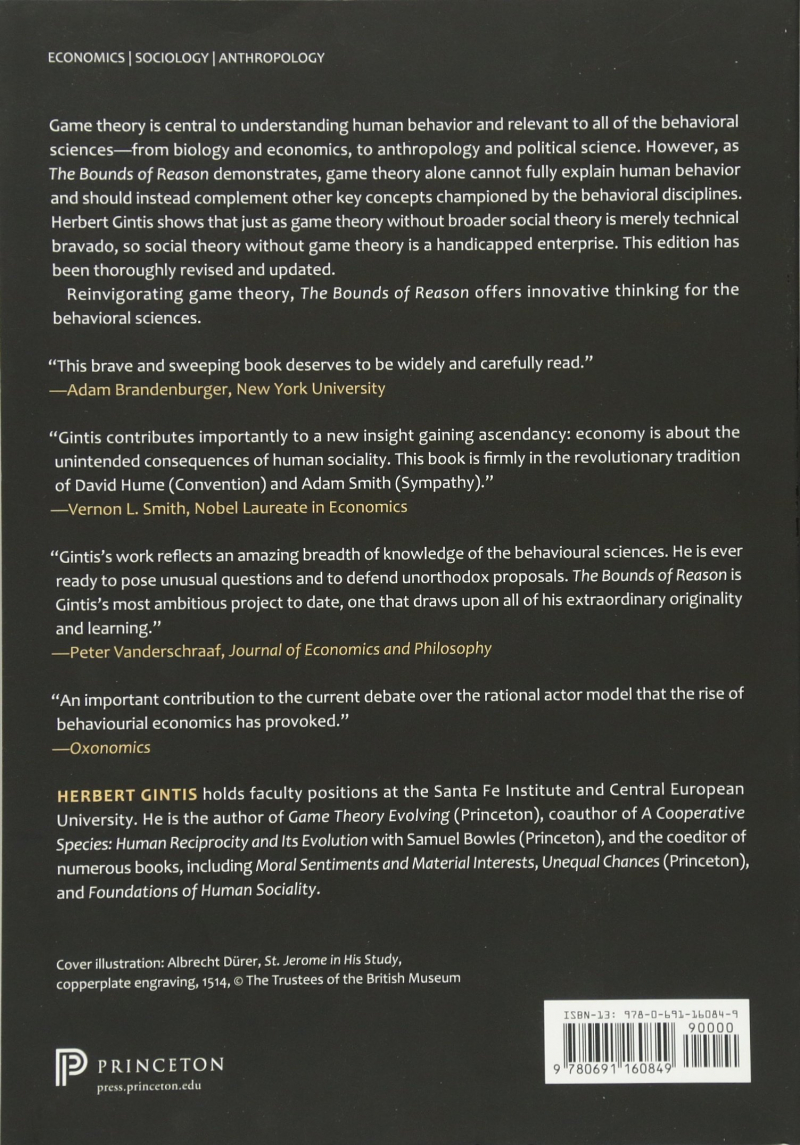
https://www.amazon.com/































